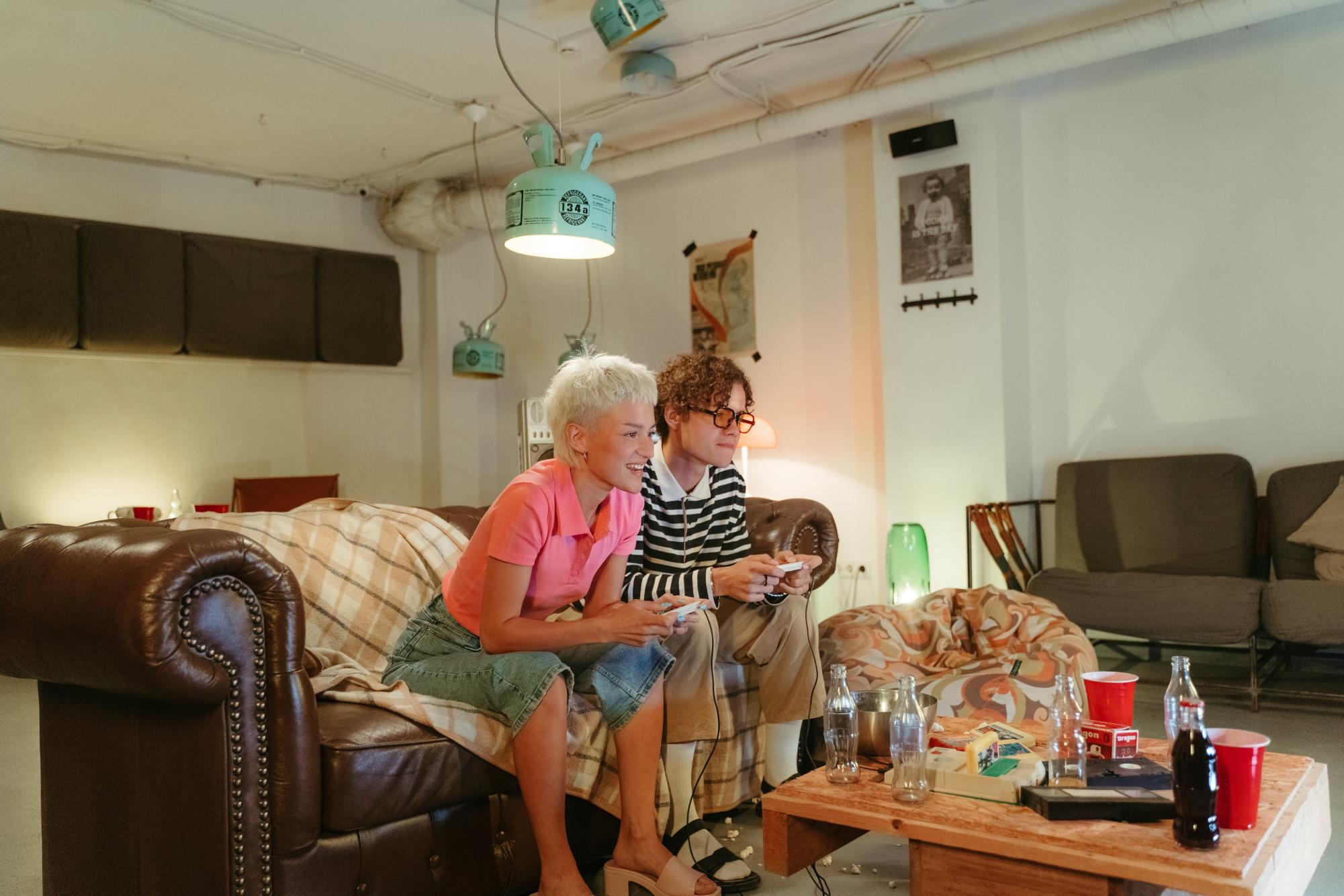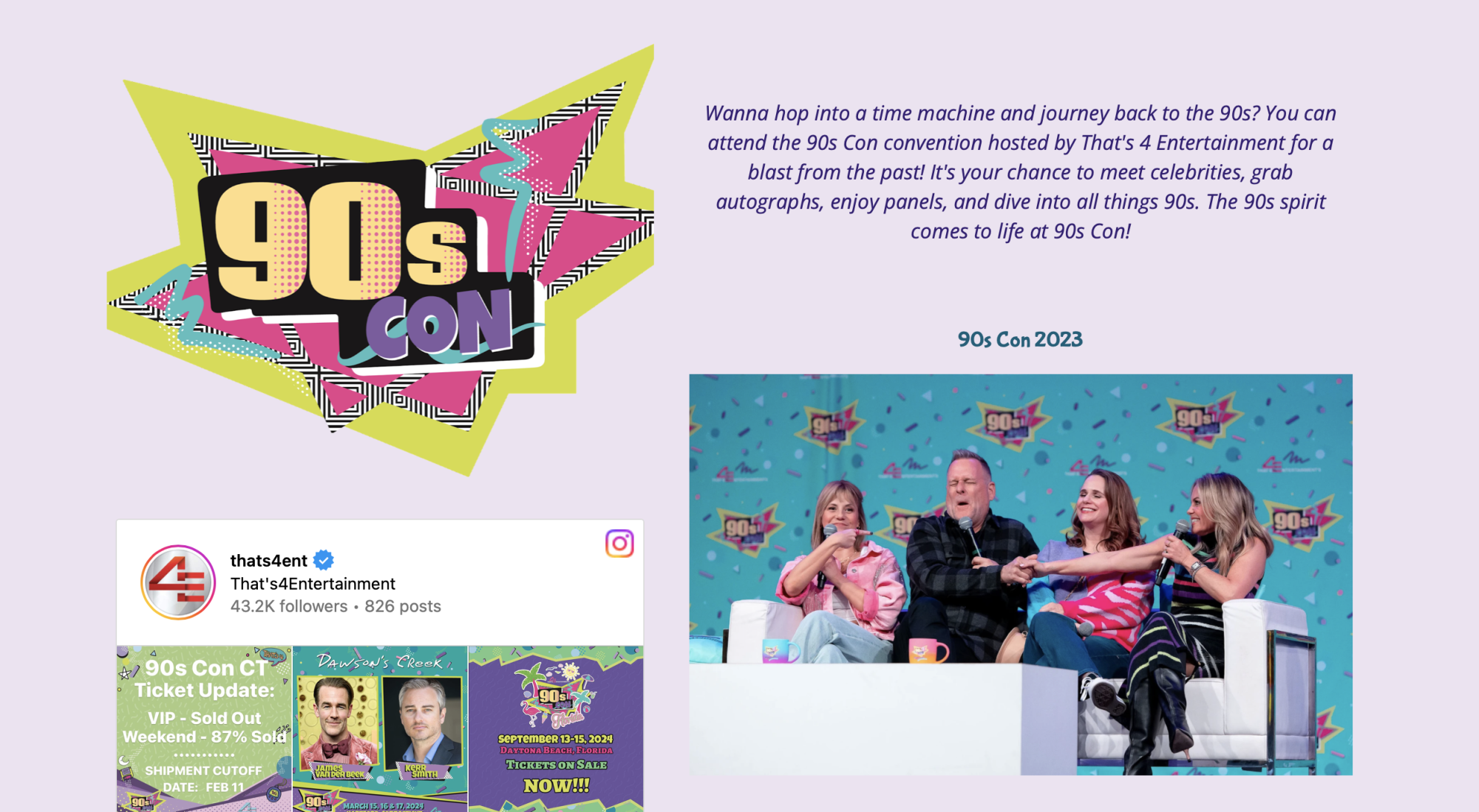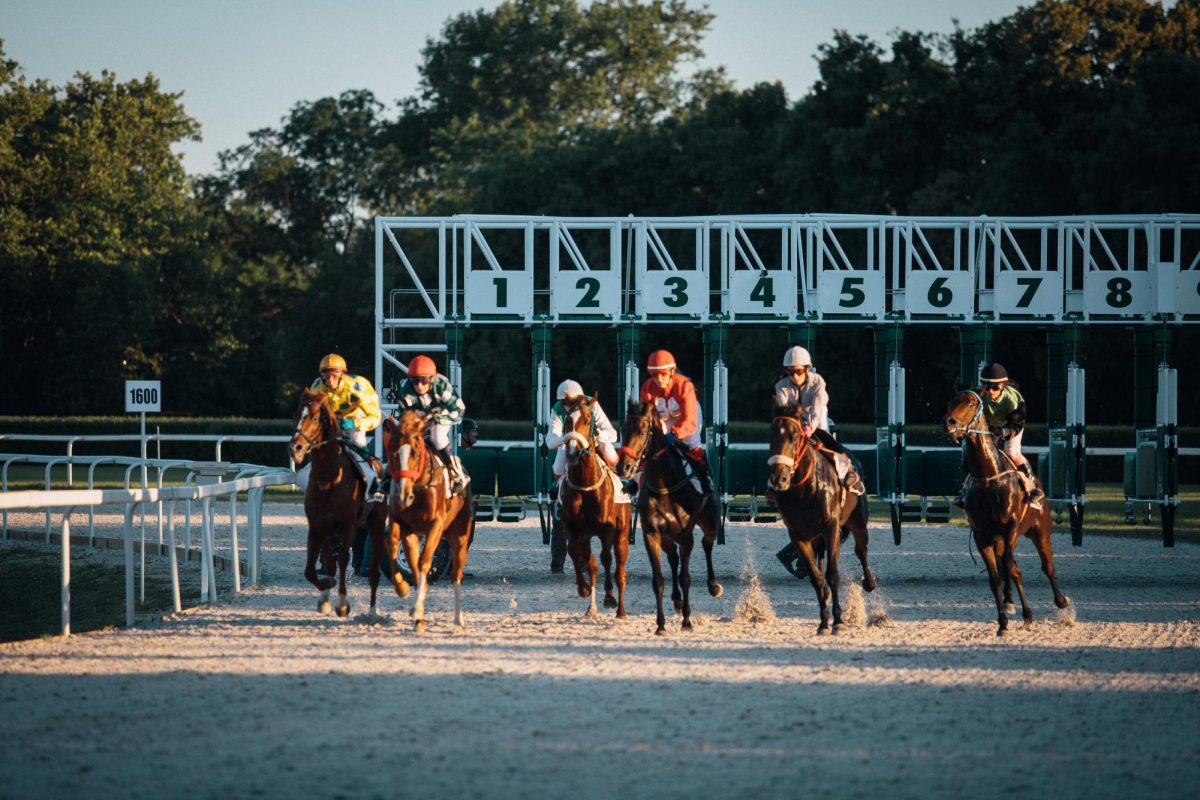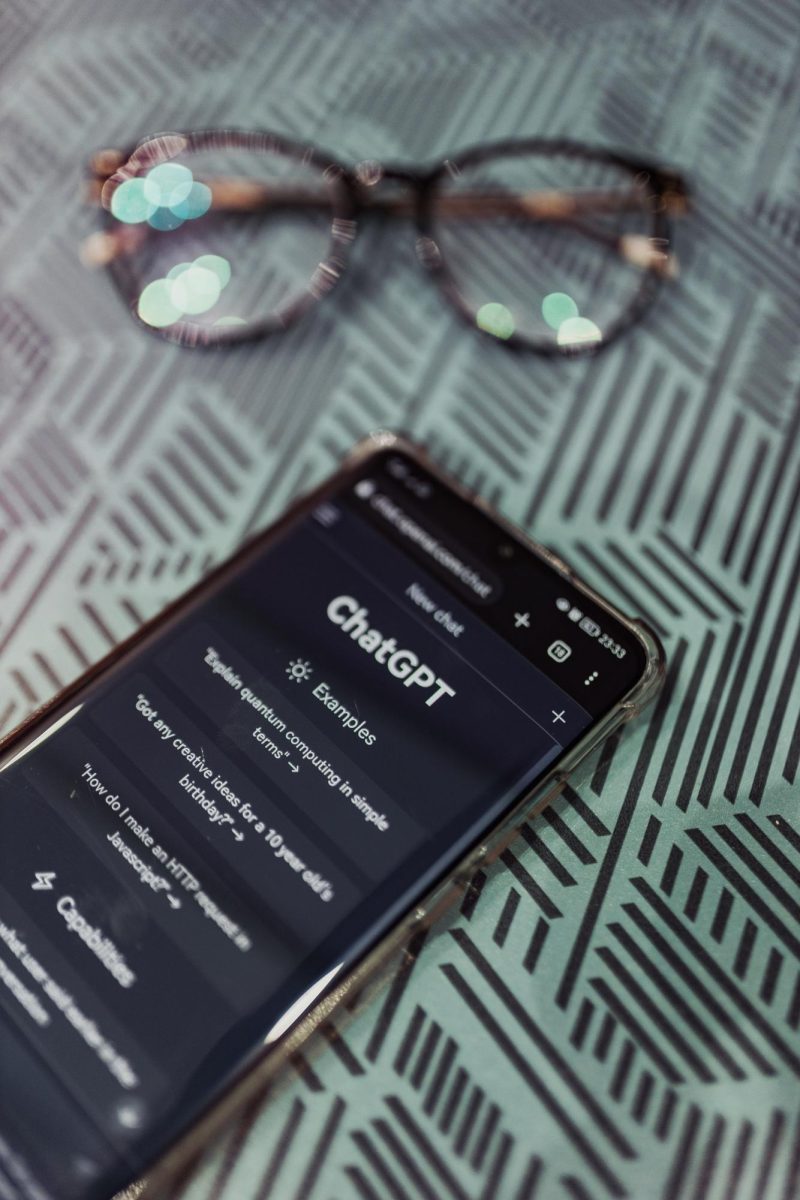
Nostalgic media, encompassing a range of media formats such as TV series, films, music, books, and advertisements that evoke sentiments of nostalgia, has a profound impact on our psychological well-being. Nostalgic experiences, memories, and interactions can all elicit nostalgic feelings, characterized by a faint hint of melancholy mixed with sentimentality. It has been demonstrated that nostalgic media consumption improves both hedonic and eudaimonic experiences, resulting in greater happiness, life satisfaction, and wholesome relationships. When people are stressed or uncertain, they turn to nostalgic media as a coping mechanism to find comfort in familiar themes and memories. This highlights the psychological impacts of nostalgia. The intricate relationship between nostalgic media and individual nostalgia is a reflection of the media’s significant impact on our psychological health and emotional experiences. The design of the project, which is a website contains various elements that pertain to nostalgic media, such as interviews and media commentary, and the impact nostalgic media has on society is highlighted.
Nostalgic media is any form of media from the past, such as television shows, movies, music, websites, or video games. When people think of nostalgic media, some may reflect on the TV show “Friends,” the video game “Pac-Man,” or the song “Sweet Caroline.” There are many forms of media that can spark a feeling of nostalgia. For a number of reasons, it is important to research nostalgic media. It sheds light on the cultural significance of nostalgia and shows how it can influence media consumption. The study of nostalgic media informs a variety of areas, displaying the impact it has on our culture, emotions, and well-being.
The study of nostalgic media is relevant today because it is often consumed by the general public, and it continues to grow exponentially. A gap in existing research is the motivation behind seeking out nostalgic media. The contributions that are being made on this subject are the feelings induced by nostalgic media and the impact it can have on well-being. The question that encompasses this topic is “How does the consumption of nostalgic media influence individuals’ emotional experiences and well-being?” Studies have been conducted to find out how stress reduction, emotional resilience, and mental health outcomes are impacted by nostalgia.
The goal of this study is to discover and highlight how nostalgic media can influence nostalgic feelings and how it affects the psychological well-being of the general public who consumes it. This research explores the social and psychological effects, including interpersonal relationships, personal identities, and possible benefits of consuming nostalgic media. Specifically, the study has three goals. First, it examines what nostalgic media means. Second, it explores how nostalgic media impacts nostalgic feelings. Third, it investigates the psychological impacts nostalgic media can have on a person’s well-being. In order to achieve the goals of this study, an examination of previous literature will be valuable. The potential benefits of nostalgic media are investigated, and our understanding of the effects of nostalgia on well-being, social relationships, and individual sense of self is deepened.
The term "nostalgic media" describes entertainment and content that triggers feelings of nostalgia in consumers, including but not limited to TV shows, movies, music, video games, websites, and advertisements. This kind of media frequently uses historical allusions and elements to evoke sentimentality and nostalgia for the past. A variety of media can evoke nostalgia (Niemeyer, 2014).
With the rise of streaming platforms and technological advancements in recent years, TV shows from the past have resurged, allowing new generations to watch an old show for the first time or an older generation to re-watch a show from their past. This also holds true for movies, websites, music, video games, and other forms of media (Wulf, Rieger, Schmitt, 2018). Nostalgic media affects a wide range of people, and it continues to expand.
The media is responsible for generating content and narratives that serve not only as nostalgic representations but also as drivers for nostalgia. The use of media, with a specific focus on new technologies, can serve as platforms, spaces for projection, and instruments for the expression of nostalgia (Niemeyer, 2014).
Multiple studies have been done that measured nostalgia for several media outlets. A study was done on popular music of the past and how nostalgia plays a role in listening to songs (Barett, Grimm, Robins, Wildschut, & Sedikides, 2010). Studies examining video games (Bonus, 2017) and past social media channels showed that they played a significant role in nostalgic media (Cox, Kersten, Routledge, Brown, & Van Enkevort, 2015).
Natterer (2014) looked into the difference between historical and personal media nostalgia in her research. When people come across media content to which they were exposed when it was initially released, a phenomenon known as personal media nostalgia occurs. Personal nostalgia is a person's unique perspective and feelings about these topics. Historical media nostalgia happens when people come across contemporary material that alludes to an era that existed before their own birth.
Nostalgic feelings can be triggered by a wide variety of events, from conversations with friends to musical compositions to the disappointment of romantic relationships to the horrors of war. If someone or something from your past comes to mind, these feelings may appear (Turner & Stanley, 2021). Nostalgic feelings can be encountered in various age groups and cultural contexts, due to distinct associations and individual experiences (Sedikides, 2015).
Media-induced nostalgia is defined by Wulf, Rieger, and Schmitt (2018) as a mixed-emotional response that is either directly or indirectly brought on by interacting with media content or technologies that bring back memories of a person, event, or other item that evokes strong feelings in the past.
During the COVID-19 pandemic, individuals turned to nostalgic media to escape the monstrosities going on in the world. When the news was full of terror and uncertainty, nostalgic media was used as a coping mechanism to retreat to a more comforting and familiar past. In these trying times, people developed nostalgic feelings, reflecting back on old memories and yearning for the past (Wulf, Breuer, & Schmitt, 2022).
Emotionally charged themes such as childhood, first love, or simpler times are often the focus of nostalgic media content. Strong emotional reactions to these themes strengthen the bond between the audience and the nostalgic elements that are presented. Nostalgic feelings are characterized by a sentimental yearning and wistful fondness for previous experiences or periods of time. The experience evokes a combination of positive sentiment and a subtle tinge of sadness (Vaccaro, Kaplan, & Dimasio, 2020).
Consuming nostalgic media has been shown to have a positive impact on a person’s psychological well-being. The positive effects of nostalgia fall into one of three different categories, which are self-oriented, existential, and social benefits (Frankenbach, 2021). These three functions are connected to psychological growth and well-being (Wulf, Rieger, Schmitt, 2018).
The self-oriented function of nostalgia is associated with self-exploration, self-esteem, and individual growth. Nostalgic media can enhance self-positivity and increase thoughts of a positive future for individuals (Sedikides, 2015). In a study that contained a sample of 664 volunteers with a diverse age range, participants were randomly assigned to either a nostalgic or control song. The results stated that the participants who listened to the nostalgic song reported higher self-esteem than the participants who listened to the control song (Cheung, 2013).
The existential function of nostalgia provides a sense of meaning in one’s life and is associated with life satisfaction (Wulf, Rieger, Schmitt, 2018). Media that contains nostalgic elements has been shown to improve psychological well-being and enhance life satisfaction (Geirdal, Ruffolo, Leung, Thygesen, Price, & Bonsaksen, Schoultz, 2021).
The social function of nostalgia intensifies social connectedness and closeness. Feelings of loneliness are reduced, and the sense of belonging is enhanced. (Wulf, Rieger, Schmitt, 2018). As mass media has progressed over the years, some individuals find it hard to adapt to the new changes within technology and have sentimental feelings toward past media. Some people feel a stronger connection to society when they share the longing for nostalgic media (Menke, 2017).
Hedonic and eudaimonic experiences, as well as psychological well-being, can be influenced by media-induced nostalgia. Eudaimonic experiences are linked to feelings of vitality, environmental mastery, and healthy relationships, whereas hedonic experiences are linked to pleasure, life satisfaction, and happiness (Hepper & Dennis, 2023).
Professors from the Departments of Psychology at Texas Christian University and North Dakota State University performed a study on the psychological effects of consuming nostalgic media, specifically nostalgic websites. The main result was that people who visited certain websites for nostalgic blogging felt more nostalgic and had positive effects like being happier with their lives and relationships (Cox, Kersten, Routledge, Brown, & Van Enkevort, 2015). After exposure to these websites, the thought of nostalgia intensified psychological and social well-being.
A study conducted by Bonus (2017) looked at the potential impact of engaging in an augmented reality (AR) video game on the psychological well-being of players. Through an online survey, a sample of 399 adults in the United States, ages 18 to 75, revealed a correlation between engagement in the game Pokémon Go and several favorable outcomes. These outcomes included increased positive emotions, nostalgic feelings, thoughts of new friendships, the strengthening of existing friendships, and increased physical activity through walking. The majority of these outcomes were found to be suggestive of improved overall well-being.
People are less likely to feel lonely when they think back on special occasions rather than routine occurrences because it makes them more receptive to social support (Wildschut, 2010). Those who experience more nostalgia also react less strongly to death reminders (Routledge, 2008). It has been discovered that consuming nostalgic media lessens the strength of these reactions and enhances psychological well-being.
The non-profit organization I plan to work with for my project is Friends with Benefit Charity Events which is a charity organization that hosts fan events for the show One Tree Hill and donates a percentage of their proceeds to various charities. A few charity organizations they have donated to are St. Jude Children’s Research Hospital, Toys for Tots, The American Heart Association, The Girl Project, and Everytown for Gun Safety.
Their goal is to spread joy around the world by allowing One Tree Hill fans to meet the cast members from their favorite show and to also donate to those in need. They raise thousands of dollars every year to help better people’s lives. The organization is located in Wilmington, North Carolina where the show One Tree Hill was filmed, and thousands of fans come out every year to meet their favorite cast members and donate to charity.
This organization has a significant relevance to this project as it brings together people across the world who have been impacted by this nostalgic television show. One Tree Hill first premiered in 2003, and it has continued to evolve twenty years later. Different generations of fans come together at their events and share their love for this show that positively influenced them.
This project could help with their objectives and goals because it sheds light on how this nostalgic based organization can bring happiness and positivity to so many people. The website can introduce the audience to this organization and possibly bring in new attendees who can help contribute to their charity donations. Friends with Benefit Charity Events benefits fans by giving them unforgettable experiences while also benefitting charities from their donations.
- Around what time did you first start watching “One Tree Hill?”
- What memories or emotions does watching "One Tree Hill" bring to mind for you?
- As an OG fan of the series, you had the opportunity to be an extra on the show. What was that experience like?
- You’ve watched the show go from cable television to streaming platforms. Why do you think the show has continued to stay relevant all these years later?
- One Tree Hill turned 20 this year. What aspects of the show create nostalgia for you, and why?
- When did you start attending One Tree Hill Conventions, and what made you want to attend?
- You volunteer for FWB which is a non-profit organization that hosts One Tree Hill events and donates to charity. When did you start volunteering for their events, and what has the experience been like for you?
- You recently got to attend the 20th-anniversary celebration of the show, where the cast reunited in Wilmington, North Carolina. How did it feel seeing the cast all together again celebrating in the place where it all started?
- My over-arching research question is How does nostalgic media positively impact a person’s well-being? Would you say that One Tree Hill has positively impacted you, and how so?
- When did you first start watching “Friends?”
- When you watch “Friends” today, do you experience any nostalgic emotions or memories?
- Friends is a pop-culture phenomenon. When watching it back in the day, did you think it would become what it is today?
- Why do you think the show is still relevant today?
- In 2021, a reunion special was made, and the cast got together to celebrate 25 years of “Friends.” How did you feel about the six friends coming together to celebrate their show that stood the test of time?
- Matthew Perry, who played Chandler, recently passed away. Can you talk about how that impacted you?
- My over-arching research question is How does nostalgic media positively impact a person’s well-being? Would you say that “Friends” has positively impacted you, and how so?
- At what age did you start listening to One Direction?
- In what ways do you think One Direction has shaped your teenage years?
- One emotions or memories does listening to One Direction bring to mind for you?
- Do certain One Direction songs transport you back to a specific time or place in your life? If so, can you describe that moment?
- Which album or era of One Direction holds the most nostalgic value for you? Why?
- Did you attend any One Direction concerts, and if so, what was that experience like for you?
- How has your relationship with One Direction's music evolved over the years, and do you still find new meanings in their songs?
- My over-arching research question is How does nostalgic media positively impact a person’s well-being? Would you say that One Direction’s music has positively impacted you, and how so?
- Around what age were you when you first started listening to Taylor Swift?
- Are there specific Taylor Swift songs that take you back to a particular moment or period in your life?
- How has your relationship with Taylor Swift’s music evolved over the years, and do you still find new meanings in her songs?
- This year, you attended “The Eras Tour,” which is a performative lookback on each of Taylor’s albums. Can you talk about how that experience was like?
- This tour in a way could be tied to nostalgia because she features a lot of her old music. Did you experience any nostalgic feelings at her concerts?
- Taylor has re-recorded and re-released her past albums and titled them “Taylor’s Version." How has the release of “Taylor’s Version” created nostalgia for you or pop culture in general?
- My over-arching research question is How does nostalgic media positively impact a person’s well-being? Would you say that Taylor Swift’s music has positively impacted you, and how so?
- How old were you when you started listening to Bon Jovi?
- What emotions or memories does Bon Jovi's music bring to mind for you?
- Do any Bon Jovi songs transport you back to a specific time or place in your life?
- Have you attended any Bon Jovi concerts, and if so, what was that experience like for you?
- What feelings are presented when you listen to Bon Jovi today? Do you experience nostalgia?
- How has your relationship with Bon Jovi's music evolved over the years, and do you still discover new meanings in their songs?
- My over-arching research question is How does nostalgic media positively impact a person’s well-being? Would you say that Bon Jovi’s music has positively impacted you, and how so?

This paper explores the profound effects of nostalgic media on psychological well-being. The study emphasizes the coping mechanism that nostalgic media offers in stressful and uncertain situations. The study aims to understand the definition of nostalgic media, examine its influence on nostalgic emotions, and examine its psychological effects on overall health. Findings show that nostalgic media consumption is positively correlated with self-oriented, existential, and social benefits, all of which lead to improved psychological well-being. The design of this project is a website that seeks to draw attention to the beneficial effects of nostalgic media on society by highlighting its relevance and advantages. Overall, this study adds to the knowledge of the psychological implications of nostalgia in media consumption and highlights its advantages for both social and personal wellbeing.
Bonus, J. A., Peebles, A., Mares, M.-L., & Sarmiento, I. G. (2018). Look on the bright side (Of media effects): Pokémon go as a catalyst for positive life experiences. Media Psychology, 21(2), 263–287. https://doi.org/10.1080/15213269.2017.1305280
Cheung, W.-Y., Wildschut, T., Sedikides, C., Hepper, E. G., Arndt, J., & Vingerhoets, A. J. J. M. (2013). Back to the future: Nostalgia increases optimism. Personality and Social Psychology Bulletin, 39(11), 1484–1496. https://doi.org/10.1177/0146167213499187
Cox, C. R., Kersten, M., Routledge, C., Brown, E. M., & Van Enkevort, E. A. (2015). When past meets present: The relationship between website‐induced nostalgia and well‐being. Journal of Applied Social Psychology, 45(5), 282–299. https://doi.org/10.1111/jasp.12295
Frankenbach, J., Wildschut, T., Juhl, J., & Sedikides, C. (2021). Does neuroticism disrupt the psychological benefits of nostalgia? A meta-analytic test. European Journal of Personality, 35(2), 249–266. https://doi.org/10.1002/per.2276
Geirdal, A. Ø., Ruffolo, M., Leung, J., Thygesen, H., Price, D., Bonsaksen, T., & Schoultz, M. (2021). Mental health, quality of life, wellbeing, loneliness and use of social media in a time of social distancing during the COVID-19 outbreak. A cross-country comparative study. Journal of Mental Health (Abingdon, England), 30(2), 148–155. https://doi.org/10.1080/09638237.2021.1875413
Hepper, E. G., & Dennis, A. (2023). From rosy past to happy and flourishing present: Nostalgia as a resource for hedonic and eudaimonic wellbeing. Current Opinion in Psychology, 49, 101547. https://doi.org/10.1016/j.copsyc.2022.101547
Menke, M. (2017). Seeking comfort in past media: Modelling media nostalgia as a way of coping with media change. International Journal of Communication, 11(0), 21. https://ijoc.org/index.php/ijoc/article/view/5534
Natterer, K. (2014). How and why to measure personal and historical nostalgic responses through entertainment media. International Journal on Media Management, 16(3–4), 161–180. https://doi.org/10.1080/14241277.2014.989567
Newman, D. B., & Sachs, M. E. (2023). Variation in bittersweet nostalgic feelings and their divergent effects on daily well-being. Emotion, 23(4), 937–948. https://doi.org/10.1037/emo0001137
Newman, D. B., Sachs, M. E., Stone, A. A., & Schwarz, N. (2020). Nostalgia and well-being in daily life: An ecological validity perspective. Journal of Personality and Social Psychology, 118(2), 325–347. https://doi.org/10.1037/pspp0000236
Niemeyer, K. (2014). Introduction: Media and nostalgia. In K. Niemeyer (Ed.), Media and Nostalgia (pp. 1–23). Palgrave Macmillan UK. https://doi.org/10.1057/9781137375889_1
Sedikides, C., Wildschut, T., Routledge, C., Arndt, J., Hepper, E. G., & Zhou, X. (2015). Chapter five - to nostalgize: Mixing memory with affect and desire. In J. M. Olson & M. P. Zanna (Eds.), Advances in Experimental Social Psychology (Vol. 51, pp. 189–273). Academic Press. https://doi.org/10.1016/bs.aesp.2014.10.001
Stephan, E., Wildschut, T., Sedikides, C., Zhou, X., He, W., Routledge, C., Cheung, W.-Y., & Vingerhoets, A. J. J. M. (2014). The mnemonic mover: Nostalgia regulates avoidance and approach motivation. Emotion, 14(3), 545–561. https://doi.org/10.1037/a0035673
Turner, J. R., & Stanley, J. T. (2021). Holding on to pieces of the past: Daily reports of nostalgia in a life-span sample. Emotion, 21(5), 951–961. https://doi.org/10.1037/emo0000980
Vaccaro, A. G., Kaplan, J. T., & Damasio, A. (2020). Bittersweet: The neuroscience of ambivalent affect. Perspectives on Psychological Science, 15(5), 1187–1199. https://doi.org/10.1177/1745691620927708
Wulf, T., Breuer, J. S., & Schmitt, J. B. (2022). Escaping the pandemic present: The relationship between nostalgic media use, escapism, and well-being during the COVID-19 pandemic. Psychology of Popular Media, 11(3), 258–265. https://doi.org/10.1037/ppm0000357
Wulf, T., Rieger, D., & Schmitt, J. B. (2018). Blissed by the past: Theorizing media-induced nostalgia as an audience response factor for entertainment and well-being. Poetics, 69, 70–80. https://doi.org/10.1016/j.poetic.2018.04.001






